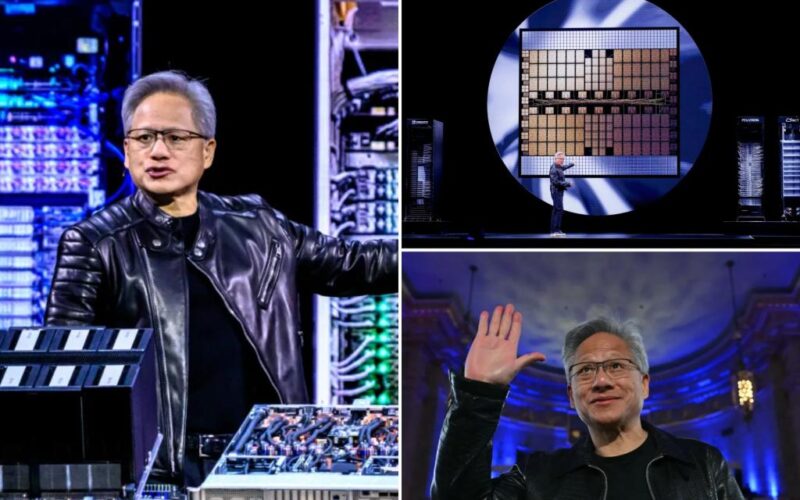Nvidia is developing an AI chip for China that is more powerful than the H20 model it is currently allowed to sell in the region, according to a report.
The new chip, tentatively named the B30A, is a less advanced version of its Blackwell B300 design, which is blocked from sale in China by export restrictions, two sources familiar with the company’s plans told Reuters.
It’s likely to deliver about half of the raw computing power of the B300 – after President Trump signaled he’d be open to allowing a new chip into China that’s “30 to 50% off” in terms of power, adding that the H20 has grown “obsolete.”
Commerce Secretary Howard Lutnick on Tuesday said he wouldn’t be surprised if CEO Jensen Huang wants to sell a new chip to China.
“I’m sure he’s pitching the president all the time,” Lutnick told CNBC’s “Squawk on the Street.”
“I’ve listened to him pitch the president, and the president listens to our great technology companies, and he’ll decide how he wants to play it.”
Nvidia is aiming to send samples of the new chip to Chinese clients for testing as early as next month, the sources told Reuters.
“We evaluate a variety of products for our roadmap, so that we can be prepared to compete to the extent that governments allow,” an Nvidia spokesperson told The Post in a statement.
“Everything we offer is with the full approval of the applicable authorities and designed solely for beneficial commercial use.”
Trump recently announced an unprecedented deal for Nvidia and AMD to give the US government 15% of revenue from their sales in China – in exchange for permission to recommence sales of the H20 and AMD’s MI308.
Nvidia built the H20 model specifically to bypass Biden-era export controls, but the company was ordered to halt sales in April.
Trump said last week that he asked for a 20% cut of Nvidia’s China sales, but that Huang negotiated it down to 15%.
It’s unknown whether Nvidia would receive regulatory approval for the sale of these chips, as there are still strong national security concerns around handing China a lead in the AI race.
And there’s growing distrust of Nvidia in China as state media claim their chips pose security risks, though Nvidia has maintained this is false.
But Nvidia doesn’t want to lose its share of the Chinese market to domestic rivals like Huawei.
About 13% of Nvidia’s revenue in the past financial year came from China.








